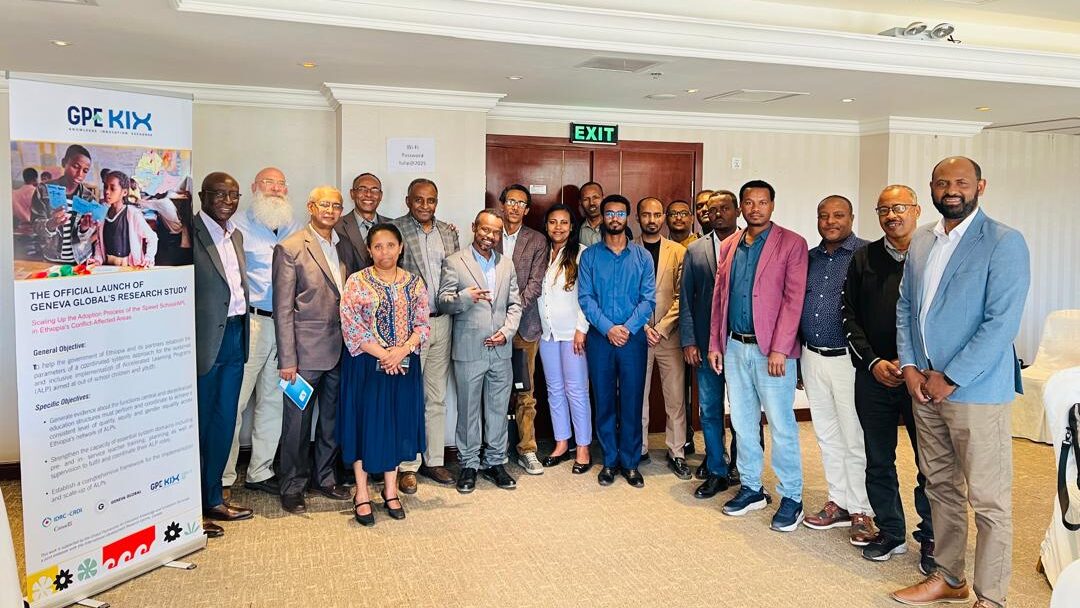On Saturday, 22 February, Geneva Global Ethiopia hosted a group of senior officials from Ethiopia’s Ministry of Education and three regional education bureaus – Amhara, Oromia, and Tigray– and other development actors to officially launch our new research initiative.
Titled “Scaling Up the Adoption Process of the Speed School/ALP in Ethiopia’s Conflict-Affected Areas,” the two-year initiative is funded by the Global Partnership for Education’s (GPE) Knowledge and Innovation Exchange (KIX) program overseen by the International Development Research Centre (IDRC). The aim of the research is to generate data to understand and analyze the government’s institutional adoption and system-driven scaling of the accelerated education program that Geneva Global has been implementing in Ethiopia since 2011. We call this “Speed School,” and the basic aim is to provide the first three grades of primary education to children aged nine to fourteen who have been denied the chance to attend formal school in a ten-month period and then to transition to mainstream government classes in Grade Four.
GPE-KIX and IDRC recognized the Ethiopia experience as a rare opportunity to study the processes that underpin the system integration and scaling of an externally funded innovation. Focusing on conflict-affected areas and populations, Geneva Global Ethiopia will work closely with government education structures at the federal, regional, and local levels to look inside the institutional “machinery” that is necessary to ensure not only that Speed School/ALP classes are operating with consistent and good quality but that all the structures that are responsible to train and support the teachers effectively have the necessary capacity and are performing well. With the help of two external researchers, Dr. Kwame Akyeampong, of Open University of UK, and Dr. Zenawi Zerihun, of Mekelle University (the two leaders of the original longitudinal studies), we will also be studying the policies, plans, resources, and structures higher up the system’s hierarchy that drive the program’s overall design, delivery, evaluation, and refreshment. The underlying principle is that continued successful operation of the classes requires that all system actors and structures that have a role to play, whether direct or indirect, are routinely paying attention to guide, support, and celebrate support which will lead to more scaling.
Geneva Global Ethiopia looks forward to sharing our experience and findings as the research unfolds.
This work is supported by the Global Partnership for Education Knowledge and Innovation Exchange, a joint endeavor with the International Development Research Centre, Canada.
